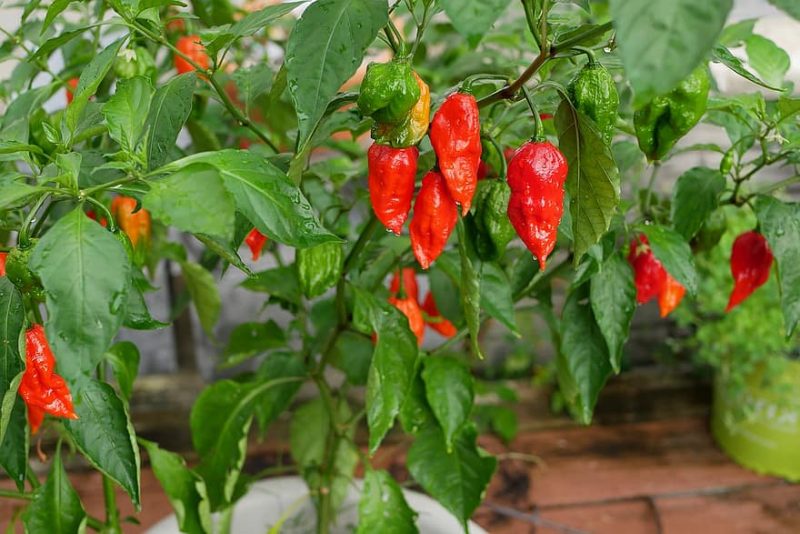If you are someone who is educated on how to fix calcium deficiency in pepper plants, then you understand why nutrients are essential.
Just like every living being, plants also need nutrients for them to grow and develop healthy produce. One of those necessary minerals is calcium, which plays a significant role in the development of plant cells to stay strong.

Different Ways To Boost Calcium In Pepper Plants
To check if your pepper plants need calcium, look for a hollow area that is yellowish or darker in color. That is what you call a blossom end rot. That part is susceptible to bacteria and fungi, which, when consumed, can be harmful to the body.
Tip #1: Check your soil for calcium deficiency
They say prevention is better than cure. For this reason, it would be easier if you can avoid the lack of calcium in the soil before it affects your pepper plants. Before you get on with the cultivation process, experts strongly suggest testing the ground.
This check is not only useful for calcium deficiency but other lacking nutrients as well. If you know what your soil needs, then you can take the necessary precautions and provide it with what it needs.
Tip #2: Use fertilizers to fix garden soil
One way to fix your garden soil is to make use of fertilizers. However, while you’re at it, be sure to avoid ammonia-based ones and other variations that contain too much nitrogen and potassium. Instead, you can go with a bone meal or gypsum as they are organic and more effective.
Tip #3: Make sure to keep your crops hydrated
One thing to remember is that this is not always about the soil. There are times that the plant itself is the one that cannot absorb calcium well. In those cases, fertilizers may not be able to help much. Therefore, instead of tending the soil, work on the crops.
The inability to use calcium might be the result of a lack of water. It has been observed that diseases develop on pepper plants that are not hydrated well. To prevent blossom end rot, it may be as simple as giving your plants adequate water.
Remember that the soil has to be consistently moist. Therefore, wet the pepper plants evenly with about two to three inches of water each week. To maintain that moisture, adding a layer of mulch can help.
How Can You And Your Plants Benefit From Greenhouse Gardening?
Are you seriously thinking about investing in a mini greenhouse, a hobby greenhouse, or a semi pro greenhouse? Perhaps you aren’t too sure about the benefits that greenhouse gardening has to offer. The truth is, most gardening enthusiasts who want to hone their gardening skills while they grow more varieties of plants tend to get into greenhouse gardening – and for good reason.
If you want to take a closer look at the reasons why they move on to the next level, check out the many benefits that greenhouse gardening has to offer:
You can manipulate the growing environment of your plants
Since a greenhouse is an enclosed space, you’ll have the freedom of controlling the temperature, moisture, and lighting conditions inside it. If you know your plants well and understand their needs, a greenhouse can make it easy for you to customize their growing environment according to their needs. You’ll be pleasantly surprised at the amazing results once you get the hang of it.
Growing seasons will be extended
Another awesome thing about setting up your own greenhouse is the fact that you’ll be able to extend your plants’ growing seasons. Since a greenhouse offers a controlled environment, you won’t have to worry about swinging temperatures when the planting season starts or ends. This also means that greenhouse gardening gives your plants a longer growing season!
Your plants will be kept safe from harsh weather conditions
Exceptionally hot days in October or frosty mornings in May can put your plants at risk. When you grow your plants in a greenhouse, you can be sure that they won’t be affected by the effects of unseasonal temperature swings. Unlike traditional outdoor gardeners who struggle to find ways to shield their plants from inclement weather, greenhouse gardeners are confident that the enclosed structure can provide their plants with enough protection when Mother Nature unleashes her fury.
Say goodbye to pesky bugs and critters
A greenhouse serves as a barrier between your plants and the pests and critters that constantly threaten to feast on your fruits, vegetables, and flowers. Unlike the plants in a traditional outdoor garden, greenhouse plants aren’t vulnerable to pest infestations. They also reduce the need to use toxic pesticides.
Final Thoughts On How To Fix Calcium Deficiency In Pepper Plants
Prevention and maintenance are necessary, but treating them is still possible if the disease has already infected your pepper plants. Fortunately, numerous remedies can be done at the comfort of your home.
For instance, you can use eggs to make a calcium spray by boiling 20 of them in a pan covered with a gallon of water. You can also save your used eggshells instead of throwing them away and add them to your compost.
Aside from that, there are more homemade solutions to choose from. If you know how to fix calcium deficiency in pepper plants and perform the recommended precautions, they would surely appreciate your nurture and provide you with a healthy harvest.
